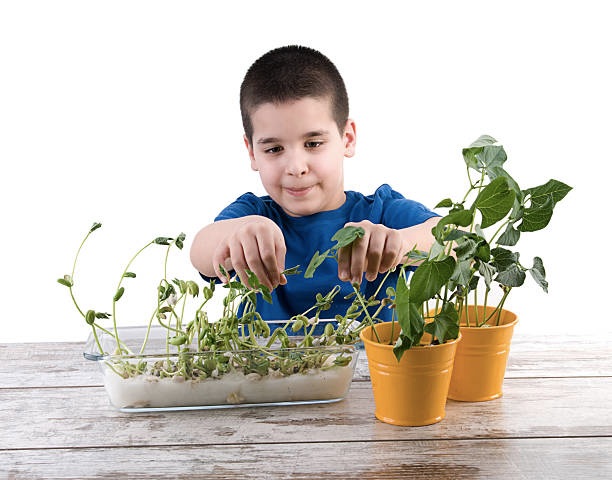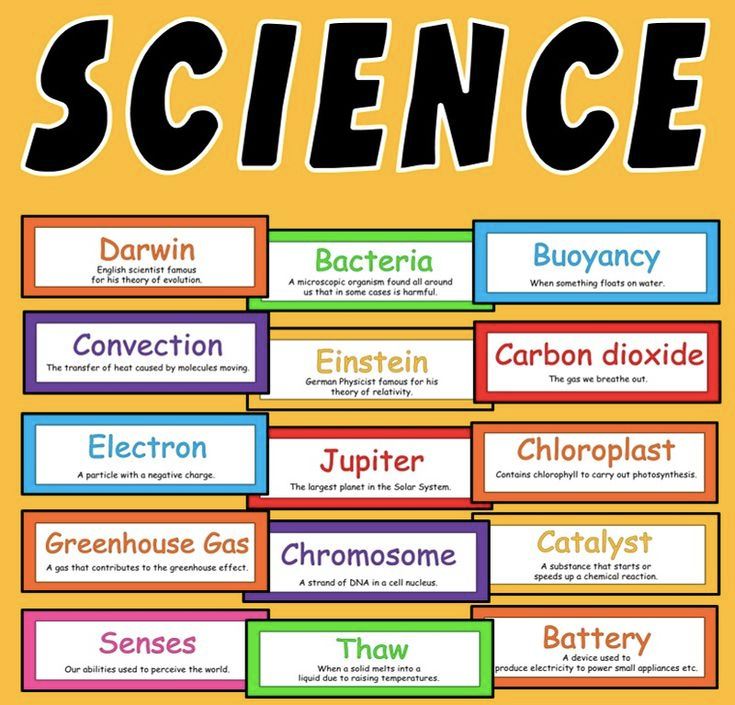Teaching 4th grade presents its own set of unique challenges and rewards. As someone who has been in the trenches of 4th-grade classrooms, I’ve gathered firsthand experience in how to teach 4th grade. This age is a critical point in a child’s education, where they transition from concrete learning to more abstract thinking. They’re more curious and independent yet still need significant guidance and support.
Math & ELA | PreK To Grade 5
Kids see fun.
You see real learning outcomes.
Watch your kids fall in love with math & reading through our scientifically designed curriculum.
Parents, try for free Teachers, use for free
Adapting our teaching methods to meet the needs of 4th graders is essential. This stage is vital for reinforcing foundational skills and introducing new academic concepts. In this blog, I’ll share insights and strategies from my experience to guide you in effectively teaching this vibrant and diverse group of students.
Related Reading: Best Teaching Strategies for Educators
5 Tips to Teach 4th Grade Math
1. Incorporate Story Problems
Story problems are a key tool as they help students apply mathematical concepts to real-life scenarios. This enhances their problem-solving skills and makes math more relevant and engaging for them.
Examples:
- Create scenarios involving grocery shopping to teach budgeting and subtraction.
- Use sports statistics to introduce concepts of averages and simple statistics.
Encourage students to write their story problems based on classroom topics or personal interests.
Start with these word problem games:
Related Reading: 7 Important 4th Grade Math Concepts
2. Start with Concrete Examples

Using concrete examples is crucial for building a solid foundation. At this age, students transition from concrete operational thinking to more abstract concepts. Starting with tangible examples makes this transition smoother.
Examples:
- Use physical objects like blocks to demonstrate multiplication or division.
- Draw shapes to teach geometry, allowing students to visualize angles and sides.
- Utilize measuring tapes or rulers in class to connect math with real-world dimensions.
3. Focus on Understanding, Not Just Memorization
Understanding the rationale behind mathematical processes is crucial for 4th graders. It helps them grasp concepts deeply rather than memorizing steps, leading to better problem-solving skills and a stronger mathematical foundation.
Examples:
- Break down time tables to show the repeated addition concept.
- Use visual aids like number lines for addition and subtraction.
- Explain fractions using real-life examples like slicing a pizza.
4. Use Technology and Interactive Tools
In today’s digital age, the traditional chalk-and-talk method of teaching math is evolving. For 4th graders, whose attention spans and learning preferences vary widely, the use of technology and interactive math tools can significantly enhance their learning experience.
Examples:
SplashLearn offers a blend of fun and education that is both engaging and effective. It turns math problems into interactive games. This approach resonates with 4th graders, who often find traditional math problems daunting or boring. By gamifying the learning process, SplashLearn ensures that children are engaged and motivated to learn more. The platform offers easy math games for kids that make learning math concepts enjoyable and accessible.
SplashLearn caters to a range of learning styles, ensuring that whether a student prefers hands-on activities, visual aids, or auditory instructions, there’s something for everyone.
Teachers can use SplashLearn to track the progress of their students. This feature helps in identifying areas where a student might be struggling, allowing for a more personalized teaching approach.
5. Introduce Step-by-Step Problem Solving
How to teach 4th grade math effectively involves guiding students through step-by-step problem-solving. This methodical approach helps them understand each part of a problem, fostering a deeper comprehension of mathematical processes.
Examples:
- To solve a long division problem, break it down into smaller, manageable steps and go through each step slowly.
- Use a problem-solving framework, like ‘Read, Question, Solve, and Check’, to structure their approach to math problems.
- Encourage them to write out each step when solving a problem, which can help identify where they struggle and need more practice.
Related Reading: Best Math Teaching Apps for Teachers
5 Tips to Teach 4th Grade Language Arts
1. Introduce Literary Analysis
At the 4th grade level, introducing basic literary analysis helps students delve deeper into texts, encouraging critical thinking and a better appreciation of literature. This involves examining elements like plot, characters, and setting, and understanding how they contribute to the story’s overall impact.
Examples:
- Discuss the motives and actions of characters in a story and how they affect the plot.
- Analyze the setting of a story and its influence on the narrative.
- Encourage students to identify themes and messages in stories and relate them to their own experiences.
Begin introducing these literary analysis games for 4th grade kids:
Related Reading: How to Teach English Language to Beginners
2. Enhance Writing Skills
Developing writing skills is a key aspect of how to teach 4th grade language arts. Students should learn to express their thoughts clearly and coherently. This skill is not only important for academic success but also for effective communication in general.
Examples:
- Regular practice with different types of writing: narrative, descriptive, persuasive.
- Teach the basics of structuring an essay – introduction, body, and conclusion.
- Use writing prompts to stimulate creativity and expression.
Here are some writing worksheets to enhance your 4th graders writing skills:
3. Expand Vocabulary and Grammar
A strong vocabulary and a good grasp of grammar are essential for 4th graders. It aids in both reading comprehension and effective writing.
Examples:
- Introduce new words weekly and use them in various contexts.
- Engage in fun activities like word games or crossword puzzles.
- Incorporate grammar lessons into writing exercises.
Expand vocabulary with these festive-themed vocabulary worksheets:
Related Reading: How to Improve Kids' Vocabulary
4. Incorporate Listening and Speaking Activities
Listening and speaking are critical components of language arts. They enhance comprehension and communication skills, preparing students for more advanced interactions.
Examples:
- Organize group discussions on various topics.
- Conduct read-aloud sessions where students take turns reading.
- Implement storytelling activities where students narrate stories or experiences.
Related Reading: Best Phonemic Awareness Activities for Kids
5. Focus on Comprehensive Reading
In 4th grade, shifting focus to comprehensive reading is vital. It’s the stage where students transition from learning to reading to reading to learning. This skill is crucial for understanding more complex texts and concepts they will encounter in higher grades.
Examples:
- Use a variety of texts (stories, poems, informational texts) to broaden exposure.
- Discuss the main ideas, themes, and characters in each reading session.
- Encourage students to ask questions and share their interpretations.
Begin with thes printable worksheets to enhance comprehension skills:
Related Reading: Best Reading Comprehension Activities for Kids
5 Tips to Teach 4th Grade Science
1. Integrate Science with Daily Life
In teaching 4th-grade science, connecting scientific concepts with everyday life is effective. This approach helps students understand the relevance and application of science in their surroundings, making it more engaging and memorable.
Examples:
- Discuss weather patterns by relating them to seasonal changes they observe.
- Explore ecosystems by examining local plants and animals.
- Study simple machines through objects they use daily, like scissors (levers) or bicycles (wheels and axles).
2. Focus on Observation and Data Collection

Teaching science to 4th graders should emphasize observation and data collection. This age is ideal for nurturing these foundational scientific skills, as students are naturally curious and detail-oriented.
Examples:
- Nature walks to observe and document different types of plants and insects.
- Simple experiments where they measure and record temperatures or growth of plants.
- Projects involving the collection and analysis of data, like a rainfall chart.
3. Use Age-Appropriate Scientific Explanations
Providing scientific explanations that are appropriate for 4th graders’ understanding is essential. Complex concepts should be broken down into simpler terms, using analogies and examples they can easily relate to.
Examples:
- Explain the concept of evaporation and condensation through the water cycle.
- Use baking soda and vinegar reactions to demonstrate chemical changes.
- Describe the solar system with models or drawings to simplify spatial concepts.
4. Introduce Basic Scientific Vocabulary

Introducing and consistently using basic scientific vocabulary prepares 4th graders for more advanced studies. It’s important to teach these terms in context so that students can fully grasp their meanings and applications.
Examples:
- Teach terms like ‘habitat’, ‘precipitation’, and ‘photosynthesis’ in relevant lessons.
- Use vocabulary flashcards or word banks to reinforce new terms.
- Encourage students to use scientific terms in their observations and reports.
5. Encourage Scientific Questions and Curiosity

Fostering a sense of wonder and curiosity about the natural world is a key tip for 4th graders. When students are encouraged to ask questions and explore their interests, they develop a deeper appreciation for science.
Examples:
- Have a “question of the day” related to the science topic being studied.
- Allow students to conduct simple research on a science question of their choice.
- Organize a science fair where students can present findings on a scientific inquiry.
Related Reading: Best & Innovative STEM Activities for Kids
10 General Tips to Teach 4th Grade Kids
1. Establish Clear Communication
Clear communication tops the list when considering how to teach 4th grade. Fourth graders are developing better language skills and understanding. It’s crucial to use clear, concise instructions and check for understanding. This can be done through simple questioning techniques or quick activities that assess their grasp of the instructions.
2. Encourage Independent Learning
Teaching fourth graders means encouraging them to take more responsibility for their learning. Introduce tasks that require them to work independently, like reading assignments or simple research projects. This boosts their confidence and prepares them for more complex tasks in higher grades.
3. Incorporate Technology Mindfully
At this stage, integrating technology can greatly enhance learning. Use educational apps and interactive online resources that align with your lesson plans. However, balancing screen time with traditional learning methods is important, ensuring a well-rounded educational experience.
4. Focus on Critical Thinking
Developing critical thinking skills is essential. Present them with problems that require analysis and decision-making. Group discussions, debates, or problem-solving tasks can be very effective. This approach teaches them to think independently and express their thoughts clearly.
5. Implementing Collaborative Learning
Group work is key. It helps them develop social skills and learn how to work collaboratively. Projects where they need to work in teams teach them about cooperation, listening to different perspectives, and conflict resolution.
6. Adapt to Different Learning Styles
Every child learns differently. Some may prefer visual aids, while others learn better through auditory or hands-on activities. It’s important to vary your teaching methods to cater to these different styles, making learning more effective and inclusive.
7. Set and Review Goals Regularly
Goal setting is crucial at this stage. Work with your students to set achievable academic and personal goals. Regularly review these goals to track progress and make adjustments. This practice teaches them the value of setting objectives and working towards them, a skill that will benefit them beyond the classroom.
8. Promote Self-Assessment and Reflection
Evaluate 4th graders work is essential for their growth. Encourage them to reflect on their assignments and identify their strengths and areas for improvement. This practice fosters self-awareness and helps them become more responsible and independent learners. Regular reflection sessions can be incorporated after completing significant tasks or projects.
9. Promote Emotional and Social Growth
Emotional and social development is as important as academic growth. Encourage activities that promote empathy, respect, and self-awareness. Discussing feelings, group dynamics, and personal challenges openly in class can create a supportive learning environment.
10. Enhance Problem-Solving Skills
Problem-solving is a critical skill for 4th graders. Incorporate puzzles, logical games, and real-life scenarios that challenge them to think and find solutions. This sharpens their reasoning abilities and prepares them for complex subjects they’ll encounter. Encouraging them to explain their thought process helps in deepening their understanding.
Related Reading: Fun Problem-Solving Activities for Growth Mindset
Conclusion
As we wrap up this blog on teaching tips for 4th graders, remember teaching 4th grade is all about patience, creativity, and understanding each child’s unique way of learning. Keep your lessons engaging and relevant, and don’t forget to have fun. After all, when you enjoy teaching, your students will likely enjoy learning!
Frequently Asked Questions (FAQs)
What makes a good 4th grade teacher?
A good 4th grade teacher is patient, creative, and adaptable, with a strong understanding of the developmental needs of this age group. They should be skilled in making learning engaging and accessible, while fostering a supportive and inclusive classroom environment.
What are the activities for Grade 4?
Activities for Grade 4 include hands-on science experiments, interactive math games, creative writing exercises, group projects, and multimedia learning tools. These activities are designed to enhance critical thinking, problem-solving, and collaborative skills.
What are the lessons in Grade 4?
Lessons in Grade 4 typically cover more advanced math concepts like multiplication and division, comprehensive language arts including reading and writing, basic sciences such as biology and physical science, social studies focusing on history and geography, and introductory technology and computer skills.












































